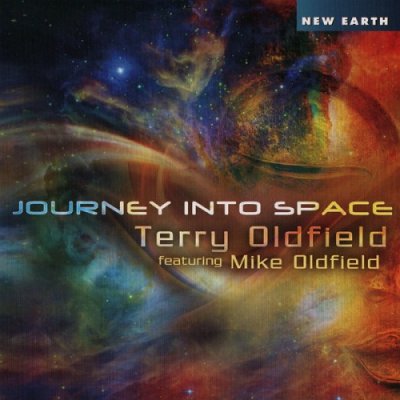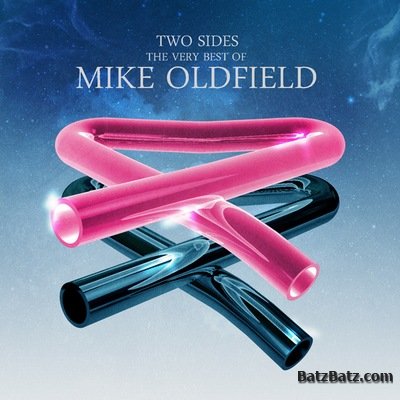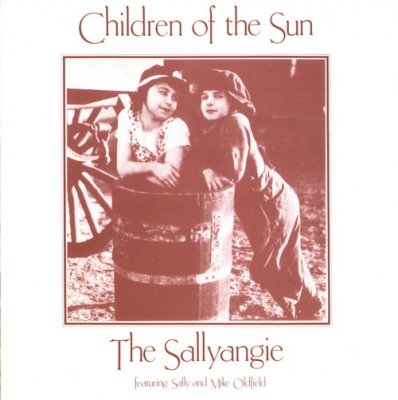Year: 17 March 2008 (CD Mar 19, 2008)
Label: Universal Music (Japan), UCCS-1113
Style: Electronic, ClassicalCountry: Reading, Berkshire, England (15 May 1953)
Time: 45:29
Format: Flac Tracks 16/44,1 kHz
Size: 235 Mb
Charts: UK #9, AUT #62, GER #14, SPA #7, SWE #31, SWI #37. UK: Silver: Poland: Gold.
Потрясающий альбом классического звучания. Великолепная музыка Майка в оркестровом исполнении звучит потрясающе. Также очень красивый женский вокал. (Композиции “The Tempest” , “ On My Heart”. ) Хотя спето в оперной манере, но достаточно мягко, вкрадчиво. Вокал принадлежит певице Hayley Westenra . В целом альбом напоминает очень сильный музыкальный саундтрек к какому-то фантастическому фильму. В композициях “The Tempest” и “Prophecy” играет известный китайский пианист Lang Lang. Также мне очень понравилась композиция “Musica Universalis.”
Музыка Майка Олдфилда мне нравится потому, что в отличии от большинства музыки нью эйдж и популярного инструментала она совершенно не примитивная. Конечно, может краткость — сестра таланта, но все же владение Майка инструментами, большой опыт дает ему более широкие возможности творческого выражения. И мне нравится, что Майк своей музыкой не проповедует никакие философские воззрения. Безусловно, какая-то его личная концепция, взгляд на мир есть, но его музыка — это прежде всего музыка. Если он использует индийское пение, он не проповедует тем самым какое-либо синкретическое мировоззрение на базе индуизма , каких-нибудь гуру, которые даже в Индии запрещены. Майк считает, что музыка может помочь, но не может решить реальные проблемы человека. Что для этого нужно предпринимать какие-то действия. Также он считает что единственное, что общего у него с музыкой нью эйдж – это инструментал. А в целом то, что он слышал в нью эйдж, он считает пустой музыкой и скучной, хотя оговаривается, что, быть может, он не слышал надлежащих композиций.
(sergina.wordpress.com/статьи/обзор-альбомов-майка-олдфилда-часть-2/) Мария Сергина, 2012
Charts: UK #9, AUT #62, GER #14, SPA #7, SWE #31, SWI #37. UK: Silver.
The legendary British composer will always be most identified with his breakthrough long-play composition "Tubular Bells" and the way it was used to illuminate fear in The Exorcist. The happy truth is that since then he's amassed an incredible catalog of over 20 albums featuring just about every instrumental form but jazz: pop, classical, new age, world music, computer game, film soundtrack, etc. The title of his 2008 45-minute classical-influenced opus Music of the Spheres is a reference to the prolific and eclectic composer's feeling that all music should aim to represent the spiritual or otherworldly elements of life -- something beyond the mundane and everyday. He accomplishes that via the sheer hypnotic beauty of the gentler passages and the percussive drama of others, both of which characterize the multi-movement opening track, "Harbinger," which lives up to its title as a preview of the overwhelming, ethereal joys to come. Mike Oldfield is a highly accomplished film composer and it would be easy to imagine gorgeous, sweeping pieces like "Animus" and "Silhouette" behind pastoral romantic scenes, and action-packed, percussively dense expressions like "The Tempest" building some heavy suspense for some nail-biting plot. Completely recorded by an orchestra at Abbey Road studios and featuring Oldfield himself on guitar, Music of the Spheres -- which features guest performances by world-renowned young soprano (and Decca labelmate) Hayley Westenra and classical piano phenom Lang Lang -- is huge in scope yet at heart simple and emotionally direct on a purely melodic level. While the piece was entirely conceived, produced, and written by Oldfield, he turned to popular modern classical composer Karl Jenkins to translate his ideas into traditional classical notations arranged for orchestra -- a great departure from the artist's usual array of studio-only wizardry. Jenkins, who once played oboe on a live BBC recording of "Tubular Bells" in 1975, gets a co-production credit, and with good reason. Oldfield scored his music via a computer program called Logic, while Jenkins used Sibelius to create the musical notation. Oldfield recorded an elaborate demo using orchestral samples, then handed it over so that Jenkins could add the human touch by re-recording it by an orchestra of classical musicians. It's a rich, heartfelt collaboration that breaks new ground for both men. Oldfield had no trouble declaring that he was almost moved to tears while listening to Music of the Spheres come alive at Abbey Road. It's a primitive spiritual and emotional response that every listener would later relate to.
(allmusic.com/album/music-of-the-spheres-mw0000497578)
01. Harbinger (04:08)
02. Animus (03:09)
03. Silhouette (03:19)
04. Shabda (03:56)
05. The Tempest (05:48)
06. Harbinger (Reprise) (01:30)
07. On My Heart (Vocals - Hayley Westenra) (02:26)
08. Aurora (03:42)
09. Prophecy (02:54)
10. On My Heart (Reprise) Vocals - Hayley Westenra (01:16)
11. Harmonia Mundi (03:46)
12. The Other Side (01:28)
13. Empyrean (01:37)
14. Musica Universalis (06:24)
При желании можно посмотреть все мои публикации на сайте. Приятного прослушивания.
Жмём и смотрим (Click to see all of my posts)!UploadyIo
KatFile
Новость отредактировал LynyrdSkynyrd - 3-07-2025, 18:43
Причина: Обновил ссылки и Описание.
![Mike Oldfield - Music Of The Spheres [Japanese Ed.] (2008) Mike Oldfield - Music Of The Spheres [Japanese Ed.] (2008)](https://i.ibb.co/sdBGb7L5/Mike-Oldfield2008-Music-Of-The-jpn-500.jpg)










3 пїЅпїЅпїЅпїЅпїЅпїЅпїЅпїЅпїЅпїЅпїЅ